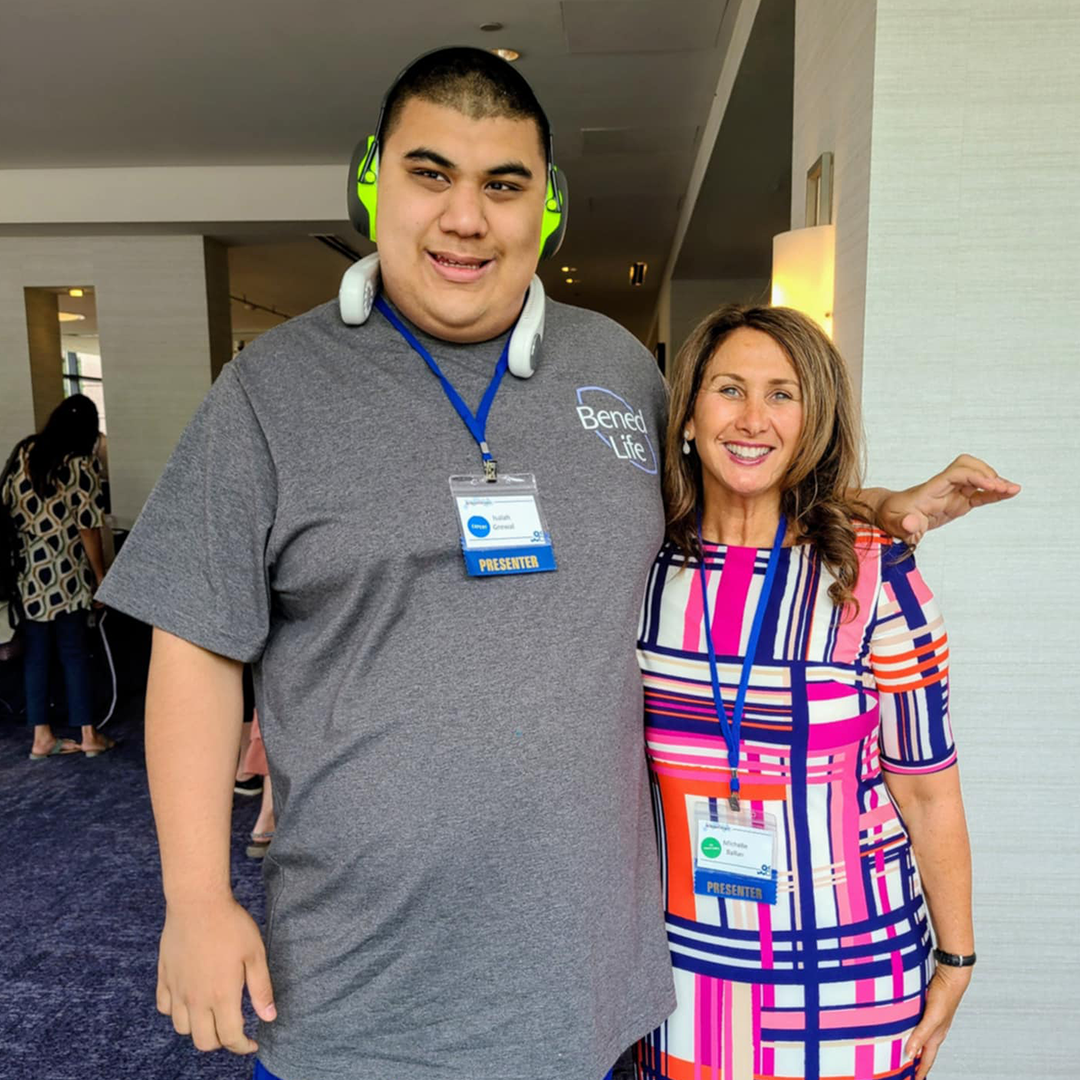
Isaiah Grewal spent the first 13 years of his life unable to communicate effectively with others.
He experienced delays in reaching speech milestones during childhood, did not respond to social cues, and was eventually diagnosed with autism. As a nonspeaker, he consulted with a host of speech specialists and, at the age of 13, learned to communicate using letter boards.
Today, after years of hard work honing his communication skills, he’s an advanced medium-term trainee at Stony Brook University’s Leadership Education in Neurodevelopmental and Related Disabilities (LEND) Center.
LEND offers undergraduate, graduate-level, and professional training to enhance the lives of individuals with autism spectrum disorder and neurodevelopmental disabilities. Trainees are prepared to lead in their fields, providing high-quality, evidence-based care, promoting inclusion, and fostering interdisciplinary clinical competence.
Grewal was encouraged to apply for the LEND program by SBU School of Social Welfare Associate Dean for Research Michelle Ballan, PhD, MSW, who also serves as LEND program director.
“Dr. Ballan encouraged me, and the more I learned about the program, the more it became obvious it was the perfect place for me to sharpen my advocacy and research skills,” said Grewal.
He has opted to complete the one-year program over two years, allowing him to thoroughly explore each of its components. One year in, Grewal, who lives in Ontario, Canada, is glad he chose LEND.
“The program has made my academic dreams come true,” he said. “Underestimated and under-schooled until age 13, when I was finally taught a way to reliably communicate, I never imagined I would have such an amazing opportunity to learn this interesting, cutting-edge knowledge.”
An inspiring and insightful perspective
Not only has the program positively impacted Grewal’s life and academic aspirations, but LEND itself has greatly benefited from his unique insight and presence.
“Having Isaiah as a co-fellow was a testament to how Dr. Ballan runs the LEND program, by uplifting neurodivergent voices that the neurotypical community wants to support without centering themselves,” said fellow long-term LEND trainee Jessie Kwong.
Kwong, also a student at Stony Brook’s Renaissance School of Medicine, joined the LEND program with a clear purpose: she believes families shouldn’t have to search for providers who are comfortable treating patients with neurodevelopmental disabilities – this level of care should be the standard across all healthcare settings.
“It truly was a privilege to learn alongside and from a self-advocate from such a marginalized group,” Kwong added. “Being in LEND with Isaiah encourages me to strive for inclusivity even when it doesn't seem like someone with a disability is present because true inclusion isn't conditional.”
Dr. Ballan cites Grewal’s in-person attendance at last summer’s orientation as key to his seamless integration into the program.
“He attended orientation in person and was able to impact his peers from day one of their LEND journey,” Dr. Ballan said. “His wisdom, empathetic nature, brilliant syntax, and humor endeared the core faculty to him and made them reconsider their understanding of non-speakers as opposed to being nonverbal.”
To better communicate with staff and fellow trainees – and further educate all in the process – Grewal created an insightful tip sheet for those interacting with nonspeakers.
“The best part about this program is being welcomed by fellow trainees and LEND faculty, no matter how differently I communicate and what accommodations I need to do the work,” he said.
Grewal plans to engage in other academic pursuits after he completes the LEND trainee program next summer.
